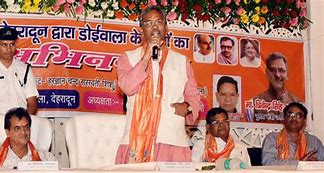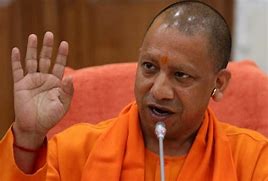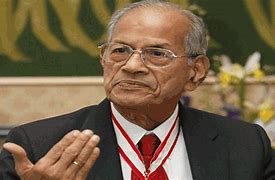Feature
No illegality in National Herald case, Sonia Gandhi tells HC

New Delhi: There was no “illegality” in the acquisition of Associated Journals Ltd. by Young Indian Ltd. as per the Companies Act, Congress president Sonia Gandhi on Thursday told the Delhi High Court, adding that BJP leader Subramanian Swamy had no locus standi in the case.
Senior advocate Kapil Sibal, appearing for Gandhi, sought quashing of the proceedings initiated by a lower court here against her, Congress vice president Rahul Gandhi and four others, saying the complaint made by the Bharatiya Janata Party leader Swamy against them was only “allegations without any supporting proof”.
Sibal said Swamy, being a third party, had no locus standi in the case as it was a company matter. “Swamy is not even a shareholder and cannot even show that something illegal has been done,” argued Sibal.
He said there was no illegality of Young India Ltd. (YIL) taking over Associated Journals Ltd. (AJL) as per the Companies Act.
The arguments in the case would continue on Friday also before Justice Sunil Gaur.
Apart from the Gandhis, Congress treasurer Moti Lal Vora, family friend Suman Dubey, and Oscar Fernandes had moved the high court for quashing of summons to them by a trial court on Swamy’s complaint.
The high court had stayed the criminal proceedings in the trial court.
Swamy had claimed that Sonia Gandhi and Rahul Gandhi, as majority shareholders of YIL, benefited from the acquisition of AJL.
On a query from the court about his locus standi in the case, Swamy said he was the complainant as the matter relates to public interest.
Swamy had alleged that AJL had received an interest-free loan of Rs.90.25 crore from the Congress and that the party transferred the debt to YIL for Rs.50 lakh. At the time, AJL, which had Vora as its chairman, claimed that it could not repay the loan and agreed to transfer the company and its assets to YIL.
On June 26, the trial court issued summons to the Congress leaders on Swamy’s complaint on “cheating” in the acquisition of AJL, the publisher of the now-defunct National Herald newspaper, by YIL – “a firm in which Sonia and Rahul Gandhi each own a 38-percent stake”.
Filing the plea, the Congress leaders said Swamy was a political opponent and the present criminal proceedings were initiated only with an intent to secure an oblique political objective.
Entertainment
Meghalaya Reserves Legalized Gambling and Sports Betting for Tourists

The State Scores Extra High on Gaming-Friendly Industry Index
Meghalaya scored 92.85 out of 100 possible points in a Gaming Industry Index and proved to be India’s most gaming-friendly state following its recent profound legislation changes over the field allowing land-based and online gaming, including games of chance, under a licensing regime.
The index by the UK India Business Council (UKIBC) uses a scale of 0 to 100 to measure the level of legalisation on gambling and betting achieved by a state based on the scores over a set of seven different games – lottery, horse racing, betting on sports, poker, rummy, casino and fantasy sports
Starting from February last year, Meghalaya became the third state in India’s northeast to legalise gambling and betting after Sikkim and Nagaland. After consultations with the UKIBC, the state proceeded with the adoption of the Meghalaya Regulation of Gaming Act, 2021 and the nullification of the Meghalaya Prevention of Gambling Act, 1970. Subsequently in December, the Meghalaya Regulation of Gaming Rules, 2021 were notified and came into force.
All for the Tourists
The move to legalise and license various forms of offline and online betting and gambling in Meghalaya is aimed at boosting tourism and creating jobs, and altogether raising taxation revenues for the northeastern state. At the same time, the opportunities to bet and gamble legally will be reserved only for tourists and visitors.
“We came out with a Gaming Act and subsequently framed the Regulation of Gaming Rules, 2021. The government will accordingly issue licenses to operate games of skill and chance, both online and offline,” said James P. K. Sangma, Meghalaya State Law and Taxation Minister speaking in the capital city of Shillong. “But the legalized gambling and gaming will only be for tourists and not residents of Meghalaya,” he continued.
To be allowed to play, tourists and people visiting the state for work or business purposes will have to prove their non-resident status by presenting appropriate documents, in a process similar to a bank KYC (Know Your Customer) procedure.
Meghalaya Reaches Out to a Vast Market
With 140 millions of people in India estimated to bet regularly on sports, and a total of 370 million desi bettors around prominent sporting events, as per data from one of the latest reports by Esse N Videri, Meghalaya is set to reach out and take a piece of a vast market.
Estimates on the financial value of India’s sports betting market, combined across all types of offline channels and online sports and cricket predictions and betting platforms, speak about amounts between $130 and $150 billion (roughly between ₹9.7 and ₹11.5 lakh crore).
Andhra Pradesh, Telangana and Delhi are shown to deliver the highest number of bettors and Meghalaya can count on substantial tourists flow from their betting circles. The sports betting communities of Karnataka, Maharashtra, Uttar Pradesh and Haryana are also not to be underestimated.
Among the sports, cricket is most popular, registering 68 percent of the total bet count analyzed by Esse N Videri. Football takes second position with 11 percent of the bets, followed by betting on FIFA at 7 percent and on eCricket at 5 percent. The last position in the Top 5 of popular sports for betting in India is taken by tennis with 3 percent of the bet count.
Local Citizens will Still have Their Teer Betting
Meghalaya residents will still be permitted to participate in teer betting over arrow-shooting results. Teer is a traditional method of gambling, somewhat similar to a lottery draw, and held under the rules of the Meghalaya Regulation of the Game of Arrow Shooting and the Sale of Teer Tickets Act, 2018.
Teer includes bettors wagering on the number of arrows that reach the target which is placed about 50 meters away from a team of 20 archers positioned in a semicircle.
The archers shoot volleys of arrows at the target for ten minutes, and players place their bets choosing a number between 0 and 99 trying to guess the last two digits of the number of arrows that successfully pierce the target.
If, for example, the number of hits is 256, anyone who has bet on 56 wins an amount eight times bigger than their wager.





















